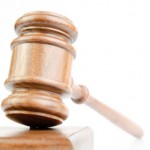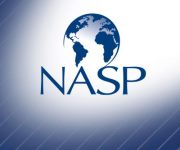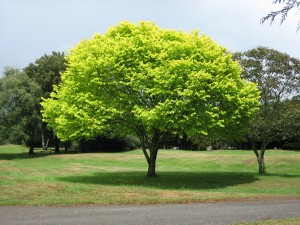According to Anthony Hallett’s article in the latest Subrogator magazine drones will prove a disruptive technology that will change industries, like subrogation, in the near future. Drones will improve safety regarding forensic inspections and investigations. Due to the high degree of control and the ability to harness LiDAR and photogrammetry these drones will enable investigators to conduct investigations from a safe distance. There will be uncertainty regarding the safe operation of drones and how to attribute liability in the event of an accident. Therefore, subrogation professionals will have to stay abreast of changes in federal and state legislation dealing with drones. The inevitable accidents that due occur as the use of drones proliferates means that subrogation professionals will have to learn how to investigate drone accidents and attribute fault based on local and federal laws. Lastly, the insurance industry as a whole will have to come to terms with the fluid risk/benefit calculus in the face of unmanned aircraft. This extends to the use of autonomous vehicles on American roads too. These vehicles will most likely prove drastically safer than human drivers, this will have huge ripple effects on the insurance industry.
Chaplin & Gonet now accepting North Carolina claims!
Chaplin & Gonet is proud to announce our continuing commitment to bringing subrogation excellence throughout the South-Atlantic with the acceptance of North Carolina subrogation claims! This expansion into North Carolina makes it easier than ever for carriers to find a subrogation firm with experience and expertise to handle their subrogation claims in the South-Atlantic region.
Interview with Carrier is Protected Work Product
 A recent ruling by the Prince William County Circuit Court declared that interviews by carriers with their insured regarding an auto accident fall within the shield provided by the “work product” doctrine of supreme Court Rule 4:1(b)(3). The Virginia Court of Appeals upheld the decision. Plaintiff’s motion to compel was denied for several reasons.
A recent ruling by the Prince William County Circuit Court declared that interviews by carriers with their insured regarding an auto accident fall within the shield provided by the “work product” doctrine of supreme Court Rule 4:1(b)(3). The Virginia Court of Appeals upheld the decision. Plaintiff’s motion to compel was denied for several reasons.
First, the court stated that the “work product” doctrine “protect[s] not only materials gathered by or for counsel in anticipation of litigation, but materials gathered by or for others, including the liability insurance carrier.” Furthermore, the court cited Veney v. Duke for the proposition that discussions of third party coverage is protected by the “work product” doctrine, and extended that logic to discussions of first party coverage. Finally, since the case at bar involved an insured who plead guilty to a traffic infraction and contested liability in a subsequent civil case, the court stated that the affirmative duty of defense counsel to prevent his client from testifying to a known falsehoods “offers sufficient protections.”
This ruling has important ramifications for Virginia subrogation attorneys, insurance defense firms and personal injury attorneys. For the Virginia subrogation attorney, this ruling confirms an intuition long held, that those conversations by insurance adjusters regarding third party coverage should be protected under Virginia’s “work product” doctrine. Insurance defense firms facing Virginia subrogation firms should expect to be stymied by this latest ruling when issuing subpoenas duces tecums in the future.
Justin McLeod
Virginia Texting Law May Need Tweaking
 A case in Fairfax General District Court, heard before Judge Thomas E. Gallahue, underscores the need for the Virginia General Assembly to overhaul the Reckless Driving code section to explicitly include texting while driving. In the case Judge Gallahue dismissed the reckless driving charge against Jason Gage since the statute in question, VA Code section 46.2-852 et seq. This issue directly affects Virginia Subrogation attorneys, who routinely use the convictions or pleas of guilt to driving offenses as evidence in the case against defendant drivers.
A case in Fairfax General District Court, heard before Judge Thomas E. Gallahue, underscores the need for the Virginia General Assembly to overhaul the Reckless Driving code section to explicitly include texting while driving. In the case Judge Gallahue dismissed the reckless driving charge against Jason Gage since the statute in question, VA Code section 46.2-852 et seq. This issue directly affects Virginia Subrogation attorneys, who routinely use the convictions or pleas of guilt to driving offenses as evidence in the case against defendant drivers.
The case in question arose from Jason Gage allegedly reading texts while driving, according to Gage’s cellular records, which show he received several text messages around the time of the accident. Kyle Alec Rowley, only 19 years of age, was fatally struck by Gage’s car when his car was parked in the right travel lane after ceasing to operate. Rowley’s hazard lights were illuminated and the car in front of Gage successfully navigated around Rowley’s vehicle, but Gage struck the rear of Rowley’s vehicle, killing Rowley.
According to police there were no signs of excessive speed or driving under the influence to account for Gage’s accident, which led them to investigate his cellular records. The police did not think to charge Gage under VA Code 46.2-1078.1, which levies a $20 fine for texting while driving. Since the reckless driving statutes do not include provisions proclaiming texting or talking on a cell phone “reckless” Judge Gallahue stated he had to dismiss the charge.
There is a strong argument that amending the reckless driving statutes to include a provision for texting while driving will send a strong message to Virginia drivers to cease texting while driving. There have been numerous studies demonstrating texting while driving exponentially increases the likelihood of an accident. For the Virginia Subrogation attorney having a clearly written, inclusive reckless driving statute makes prosecuting subrogation claims easier to prove in court, since a conviction or admission would demonstrate prima facie negligence on the part of the defendant.
Virginia Subrogation Referrals
If your law firm handles insurance defense or subrogation anywhere in the United States Chaplin & Gonet can help you and your clients meet your Virginia subrogation needs. Meeting national subrogation demands have never been easier with the help of Chaplin & Gonet. Contact our office today to speak to a representative about referring Virginia subrogation cases to Virginia’s trusted name in subrogation litigation: Chaplin & Gonet.
Upcoming NASP Events
 There are some great events coming up for NASP members who are eager to sharpen their subro skills. We have compiled some links to the flyers for you below if the webinar or event interests you:
There are some great events coming up for NASP members who are eager to sharpen their subro skills. We have compiled some links to the flyers for you below if the webinar or event interests you:
- August 15, 2012 – Exploring the Fiduciary Duties of Plan Administrators Flyer
- August 27, 2012 – The Subrogation Professional’s Guide to Workers’ Compensation Subrogation (Young Professionals Committee – Introductory Level Webinar) Flyer
- August 28, 2012 – End-of-Life Product Liability Losses and Recovery Opportunites Flyer
- August 29, 2012 – How process improvements can increase subrogation recoveries Flyer
- August 30, 2012 – Subrogating Farm Machinery Losses Flyer
- September 04, 2012 – Healthcare Subrogation Law Update Details Coming Soon
- September 11, 2012 – The Past, Present and Future of Using the Process of Elimination Methodology to Prove the Cause of a Fire. Flyer
- September 12 – November 7, 2012 – CSRP Webinar Series Flyer
- September 13, 2012 – Pressurized Tank Explosions Flyer
- September 26, 2012 – Alternative Dispute Resolution – Litigation is not always the only option Flyer
Trees Over Property Lines in Virginia
 A Virginia subrogation attorney handles a range of issues, some more than others. Cases involving neighbors’ trees causing damage to vehicles or homes occur more frequently than one would think. It makes sense considering the geography of our state. Virginia is home to a variety of large deciduous and coniferous trees which are a marvel to view, but can cause real problems with both their branches and their root systems.
A Virginia subrogation attorney handles a range of issues, some more than others. Cases involving neighbors’ trees causing damage to vehicles or homes occur more frequently than one would think. It makes sense considering the geography of our state. Virginia is home to a variety of large deciduous and coniferous trees which are a marvel to view, but can cause real problems with both their branches and their root systems.
The seminal case in Virginia, Fancher v. Fagella, 650 S.E.2d 519 (Va., 2007), clearly settles the question of whether the owner of the encroaching tree is responsible for the damage caused to his neighbor’s property. The parties in the suit were neighbors, and still could be, in adjoining town homes in the County of Fairfax. Joseph Fagella had a large sweet gum tree growing on his property that Richard Fancher alleged was damaging his property and that the tree constituted a noxious nuisance. Specifically, Fancher alleged that the tree was damaging his retaining wall, the rear foundation of his house and rendering the steps to his house ineffectual due to root encroachment. Fancher attempted self-help by attempting repair and cutting back branches and roots, but they always grew back. He prayed for an injunction requiring the removal of the tree and an award of damages in compensation for repairs made to the wall and the foundation. At the hearing expert testimony was presented and it was established that the trunk of the tree was located on Fagella’s property. The arborist testifying stated that the sweet gum is native to the area, that it grows to “incredible heights of 120 to 140 feet” at maturity and would eventually reach a trunk diameter of 4 to 6 feet. The arborist testified that the tree was deciduous, dropped “spiky gumballs,” had a “heavy pollen load,” an “extremely invasive root system” and a “high demand for water.” His opinion was that the tree was presently “only at mid-maturity,” that it would continue to grow, and that “[n]o amount of concrete would hold the root system back.” The root system was, in his opinion, the cause of the damage to the retaining wall and the pavers and “in the same line as those cracks to the wall and the foundation.” The arborist stated that the tree was “noxious” because of its location and that the only way to stop the continuing damage being done by the root system was to remove the tree entirely, because the roots, if cut, would grow back. After the presentation of evidence was concluded Fagella made a motion to strike the prayer for injuctive relief, based upon the Virginia Supreme Court case Smith v. Holt, and the motion was sustained. Fancher filed an interlocutory appeal to the Virginia Supreme Court, certiorari was granted.
The Virginia Supreme Court had to settle which of the two developing legal doctrines Virginia would adhere to when presiding over cases dealing with trees and neighboring properties: (1) the Massachusetts Rule or the (2) Virginia Rule. The Massachusetts Rule limits the victim to self-help and provides no remedy at law when plants are encroaching upon a neighbor’s property. The Virginia Rule provides that encroaching roots and plants can be classified as a “noxious nuisance” when they cause actual harm or pose actual danger to persons or property. In other words, the offending plants cannot merely drop flowers, cast shade or cause other minor annoyances. Ultimately, the Virginia Supreme Court adopted the “Virginia Rule” and sustained the injunction against Fagella.
TX Shines Light for VA on Equitable Subrogation Principles
 The Texas Supreme Court overturned the Austin Court of Appeals in Texas Health Ins. Risk Pool v. Sigmundik, 315 S.W.3d 12, 14 (Tex.2010) that ruled the “made whole” doctrine was inapplicable in a subrogation action where a contract clearly lays out a right to subrogation. This reversal is in line with a previous case, Fortis Benefits v. Cantu, 234 S.W.3d 642 (Tex.2007), standing for the same proposition.
The Texas Supreme Court overturned the Austin Court of Appeals in Texas Health Ins. Risk Pool v. Sigmundik, 315 S.W.3d 12, 14 (Tex.2010) that ruled the “made whole” doctrine was inapplicable in a subrogation action where a contract clearly lays out a right to subrogation. This reversal is in line with a previous case, Fortis Benefits v. Cantu, 234 S.W.3d 642 (Tex.2007), standing for the same proposition.
Despite this clear line of case law, the Austin Court of Appeals erred on the side of the “little guy” in the situation where a trial court attempted to allocate the entirety of an $800,000.00 settlement in a negligence suit to the family of an individual who was injured in an oilfield explosion and spent 52 days in the hospital before eventually succumbing to his extensive injuries. When the insurance company intervened in the action and asserted a $330,000 lien on any recovery obtained by the family the trial court ruled that where subrogation claims work an injustice they should not be allowed. The court cited the financial hardship of the family and the solid financial position of the insurance company. The Austin Court of Appeals concurred with the trial court’s reasoning and affirmed. Ultimately, the Supreme Court overturned the ruling and cited its own cases to the contrary.
These cases are instructive for the Virginia subrogation counsel facing sympathetic trial judges who may be tempted to ignore the plain subrogation language in an insurance contract to “balance the equities.” As the Texas Supreme Court affirms, contracts are still held to be almost sacrosanct, no matter the outcome. This applies for subrogation, just like any other form of contractual agreement.
National Association of Subrogation Professionals (NASP)
Press Release from NASP Amicus Committee:
CGI v. Rose
Last year, NASP authored an amicus brief before the Ninth Circuit Court of Appeals supporting the plan in CGI Technologies and Solutions, Inc. v. Rose. Today, the Ninth Circuit release a decision in that case which is adverse to the subrogation industry. Specifically, the Ninth Circuit held that district courts could refuse to enforce clear plan language of an ERISA plan if it determined that enforcement of the language was not appropriate under the circumstances. In the Rose case, the Ninth Circuit remanded the case back to the district court to determine whether it was “appropriate” to enforce language that clearly disavowed the make-whole doctrine.
In issuing its opinion, the Ninth Circuit Court of Appeals adopted the rationale used by the Third Circuit in US Airways, Inc. v. McCutchen, 663 F.3d 671 (3rdCir. 2011). US Airways filed a petition for certiorari to the United States Supreme Court on the McCutchen case. NASP (along with SIIA and the Western Pennsylvania Teamsters) authored an amicus brief supporting the petition. Coincidentally, the Supreme Court is scheduled to conference that petition tomorrow. As such, we should know soon whether the Supreme Court will review the issue addressed in the McCutchen and Rose cases.
Kammy Poff, Amicus Committee Chair
Joseph Willis, Legislative Affairs, Chair
Chaplin & Gonet Sets Sail for the Bahamas

In celebration of meeting their collection goals for the year, staff at the law firm of Chaplin & Gonet have been rewarded by setting sail to the Bahamas! The firm broke all historical collection records and demonstrates the determination of Chaplin & Gonet to collect on behalf of subrogation and collection clients.
As a result the office will be closed May 24 through May 29. All voice mails and emails will be answered promptly upon re-opening. If you would like to put Virginia’s premier subrogation and collection firm to work for your company contact us today.
